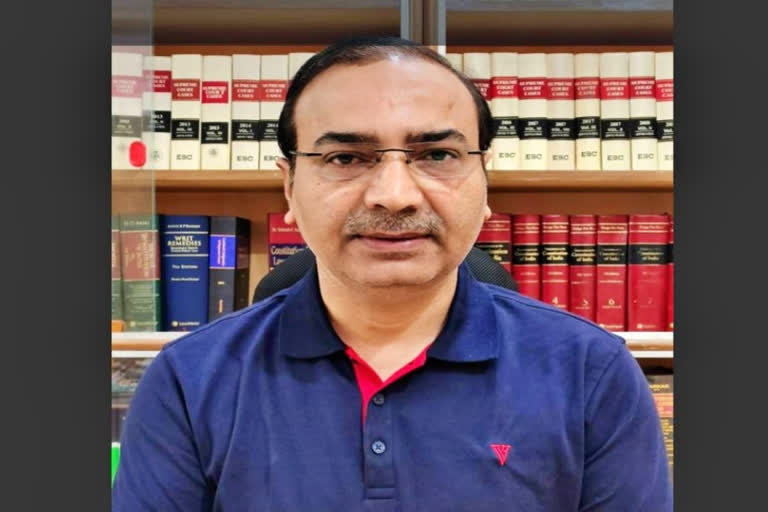New Delhi: Appointment of judges through collegium has been a controversial issue for a while now. Government and judiciary is at logger heads as the government wants National Judicial Commission to be set up which would include the government in the process of appointing judges and judiciary wants the collegium system to continue as it thinks political interference in appointing judges would hamper the system.
Regarding the same issue a Public Interest Litigation(PIL) is also pending in the Supreme Court that seeks continuance of the collegium system but with a secretariat and independent screening committee so that the system becomes more efficient.
The PIL has been filed by Supreme Court Advocate Ashwini Upadhyay. He spoke to Etv Bharat regarding the whole issue and supported the system of collegium. "Collegium should continue but should have a secretariat and screening committee following the NJAC judgement," said Upadhyay.
He said that presently only senior most three judges, in case of High courts, and senior most five judges in case of Supreme court constitute the collegium who might not know every one and while considering names leave out some good advocates who are expert in their fields.
Citing an example, he explained that currently there are more that 150 judges in the Allahbad High Court and they have divided criminal, tax, civil matters etc among themselves. Advocates practice in a particular field and is possible that he/she doesn't go to those judges' court who are seniormost and constitute collegium.
Upadhyay also said that he /she might be good but due to no interaction the collegium would not know and therefore not consider the names for judgeship. To avoid this full court meeting should be held where all judges sit and discuss names and then if not through consensus, but by voting should finalise the names for judgeship. He said that if in Lok Sabha where 500 people vote for a law, it is possible, it is very much possible in the courts as well.
Further he said that people who practice in a High Court should not be appointed in the same court as judge and should be transferred once the President gives the final nod for appointment. He said that advocates know each other, have spend 15-20 years together, eating together, playing table tennis together and ultimately they are human beings and biasness can be there in their minds if their friends argue before them about a case. "Where they practice, they shouldn't be appointed there," said Upadhyay.
In case of appointments in the top court, Upadhyay said that in last 10 years only three advocates have been elevated to SC so that frequency can be managed without any harm to justice delivery system. Moreover in SC, they sit in division benches and not in single judge bench that it would affect the case entirely.
Speaking about the drawbacks of the NJAC system, Upadhyay said that it would introduce reservation system in higher court that would affect the justice delivery system adversely. He said that in case of Distruct courts, reservation exists but then there are higher courts to keep a check on orders which would become difficult in case Higher courts also have people based out of reservation rather than just merit.
He suggested that pattern like UPSC should be followed wherein an All India exam is conducted, advocates apply from all over the country and qualify it. That way meritorious ones will be elevated.
